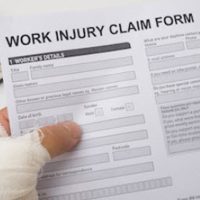Legislative Update: “Substantial Compliance” May Be Enough

A recent case decided by the Appellate Court of Connecticut deals with the issue of proper notice required in a Connecticut workers’ compensation claim. The defendant in Fieldhouse v. Regency Coachworks, Inc., et al. (2022) sought to appeal the decision of the state’s Compensation Review Board, which allowed the plaintiff’s workers’ compensation claim to proceed against the company even though she had allegedly failed to comply with the notice requirements mandated by Connecticut law.
The plaintiff had been injured on the job, falling down ‘several stairs’ and injuring herself. Her supervisor helped her up and eventually allowed her to leave work early to seek treatment for her injuries and the pain they were causing. Despite medical assistance, the plaintiff’s pain did not abate, and she advised her immediate supervisor of her intention to file a workers’ compensation claim. He advised her to do so, and she visited the office of the defendant’s insurer in order to get the ball rolling.
An employee of the insurer helped the plaintiff to complete the initial injury report, and told her that she would file the claim on the plaintiff’s behalf. Critically, the plaintiff did not know exactly how long she had in which to file her claim – but the employee had specifically told her that she had two years in which to file, and she relied upon that statement. Later communications from the insurer were also interpreted as her claim being initiated, when in reality, the questions and paperwork were setting the groundwork for filing, not part of the filing itself.
In reality, Connecticut law allows only one year from the date of an accident in which one can file a claim for workers’ compensation, and because of this, the defendant sought dismissal of her claim, arguing that Form 30C (the true method of initiating a workers’ compensation claim) had not been filed in time and thus, they did not have proper notice of the plaintiff’s claim. The plaintiff argued that under the totality of the circumstances test, the defendant had notice of her intent to file a claim within 1 year, and that was enough to qualify.
The court held that the plaintiff “substantially complied” with the notice requirements, because even without the proper forms being complete, the defendant did have notice of plaintiff’s intent to file a claim. Activity on her case was being performed; the fact that it was moving too slowly was unknown to the plaintiff. The intent of the plaintiff was to comply with the requirements, and because the defendant had actual notice of her claim, the Appellate Court ruled that plaintiff did ‘substantially’ comply with the requirements.
Contact A Connecticut Workers’ Compensation Attorney
The plaintiff in Fieldhouse was granted leave to apply for benefits, but your workers’ compensation case may be decided differently. If you have questions or concerns about your own petition for benefits, a Stratford workers’ compensation attorney from the Morizio Law Firm can try to get them answered. Contact us today at 475-338-3505 for a free consultation.
Sources:
leagle.com/decision/inctco20220712033
portal.ct.gov/WCC/Statutes-and-Regulations/Workers-Compensation-Statutes/2021-Workers-Compensation-Act/31-294c

